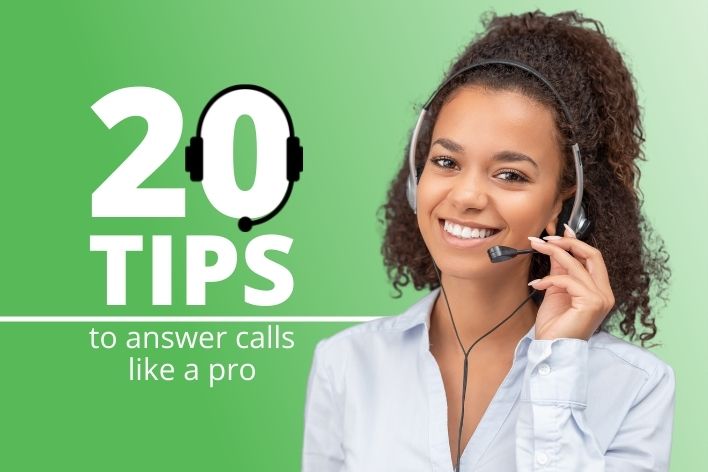Customer care has and will always be a vital ingredient in the recipe for a successful business. The ability to dedicate more time and care to service and product delivery is what gives small businesses the upper hand over bigger conglomerates, as they work on a smaller scale and thus can carefully tend to each client. However, as the business starts to grow and demand increases, extra staff is required to ensure work is done without dropping the “customer care” ball.
“Receptionists have a huge responsibility when it comes to customer care, as they are usually the first point of contact when someone wishes to get in touch with your business,” says Chenara Coetzee, General Manager at Real Receptionist, “Unfortunately, not every business has a dedicated receptionist, leaving other staff to get distracted every time they need to answer the phone. Distracted staff members are often less polite and more curt to callers, which damages the relationship between your brand and a potential client.”
Coetzee goes on to share 20 tips on being an A-grade receptionist, tips that every employee answering business calls can (and should) use:
TIP #1
Be on time.
It’s so easy to lose potential sales by simply missing a phone call. Proper telephone etiquette is to answer each call by the second ring, as it shows a sense of urgency and that you value your callers’ time.
TIP #2
Always smile when you answer the phone.
Answer calls with a positive attitude and aim to be constructive throughout the call, even if the caller is being challenging. Be patient and try to assist the caller where you can.
TIP #3
Maintain a professional tone and use formal greetings.
Use a formal and polite greeting that includes both your and the company’s names, this creates a sense of consistency and trust for your brand, especially with return callers.
TIP #4
Stay organized.
Having your desk correctly set up for the day is vital. Have a notepad or recording systems ready to ensure all important details of each call is logged. Keep the company directory close to allow for quick call transferring, as well as other important information (like FAQs) to quickly assist with caller queries when possible.
TIP #5
Listen carefully.
Listen carefully to what the caller says to correctly determine what they need to offer the best solution/response or to transfer them to the correct person. Glazing over their words and rushing to transfer the call will lead to frustration and wasted time for both the caller and your colleague/s.
TIP #6
Communicate effectively.
Aim to keep calls short by offering concise, but polite, responses. Avoid lengthy, boring, or complicated replies, as these only keep the line busy while wasting the caller’s time. Stick to laymen terms, using common phrases and easy-to-grasp explanations. No office jargons!
TIP #7
Verify the information.
Make sure to record every important detail and check it for accuracy. Repeat the message back to the caller, ask the caller to spell out any names you’re unsure of, and confirm that supplied contact numbers and emails are correct. Don’t say “goodbye” unless you are 100% sure of the message and details to relay.
TIP #8
Keep the caller informed.
Polity inform or ask a caller when and why you’re about to transfer them or place them on hold. In general, no caller enjoys having to repeat their message after each transfer nor do they enjoy being on hold for long, so be sure to explain why you are transferring their call.
The Real Receptionist Challenge: If you need to place callers on hold frequently, challenge yourself and your team to keep score of who can maintain the shortest hold time in the office each month. This will create a sense of urgency, which your caller will enjoy, all while making a fun game out of it.
TIP #9
“Thank you” is the magic word.
Keeping a caller happy can be a challenge, especially during a complaint call. The smallest phrases can help ease tensions, such is the conversational magic of saying “Thank you” whenever the caller gives you information, agrees to hold, and once more for the call before saying goodbye.
TIP #10
Record caller contact details first.
Dropped calls are an unfortunate everyday occurrence in the word of telephone operators. Poor signal, low battery power, insufficient call time, these all can abruptly end a call between you and a potential customer. Be sure to either ask their contact information right after greeting or invest in services that record caller details for easy callbacks, which is what they do at Real Receptionist.
TIP #11
Take a breath.
It’s easy to get distracted and forget that every incoming call deserves your full focus. When the phone rings, put all other work aside, take a breath, and give your total attention to the caller. Remember, first impressions are everything, and bad ones are hard to forget.
TIP #12
Avoid eating and chewing.
Nobody enjoys hearing chewing or a full mouth over the phone. Avoid eating and chewing gum when on duty, in fact remove all mouth-watering temptations from your desk to ensure you never answer a call with unpleasant chewing sounds.
TIP #13
Be extra helpful.
When you get a call that is either a misdial or perhaps someone that is looking for another company, don’t just say ” Wrong number” and ” Goodbye”. Try to go the extra mile. If you can advise them and point them in right direction, or answer their burning question, do so. Every small gesture of kindness helps boost your brand.
TIP #14
Keep calm and don’t lose your temper.
Not all calls go quite as planned. Sometimes the caller can be upset or agitated and rude. While it may be hard to resist being annoyed with the caller, try your best to maintain a positive and helpful tone. As a receptionist, you speak with the company’s voice, so every customer (even the annoyingly rude ones) is important. Be sure to keep a stress ball nearby and squeeze tightly every time an angry caller comes along, say “Woosah” and remember: You got this!
TIP #15
Avoid distractions by putting your personal mobile on silent.
Try and minimize distractions when tending to business calls. Keep your private phone on silent to avoid annoying call and message notification sounds going off in the background while talking to a potential or existing customer.
TIP #16
Record important feedback.
Always keep a spreadsheet or customer management system at the ready to record any important feedback and share it with your manager at the end of the day or week. You never know when someone may share a useful tip that can improve customer care and experience of the brand.
TIP #17
Dress to impress.
Even if you’re a virtual, off-site, work-from-home receptionist: dress to impress. Dressing like a professional for each day puts you in a productive mindset, improves self-perception and cultivates a sense of control during tense or uncertain moments.
TIP #18
Try to be understanding.
Not every caller will be polite, some will be angry or annoyed from the moment you say hello. The caller should be more courteous, but as a receptionist it is your job to take the high road, stay calm, and understand that your caller may have experienced quite a bit of trouble before speaking to you.
TIP #19
Invest in a quality headset.
Receptionists spend a lot of time on the phone, so buying a quality headset that can be worn comfortably for hours, one with quality sound, is an investment. “At Real Receptionist, we favor the Yealink headsets,” says Coetzee.
TIP #20
Keep an extra headset.
You never know when a technical malfunction may occur, and if your headset kicks the bucket, you’ll be left balancing the phone between your ear and shoulder as you’re recording messages and taking notes while assisting a caller.
It’s not hard to employ more people and set up a call center to ensure you never miss a customer call, but it can be expensive. Luckily, you don’t have to stretch your budget to the max to set up a quality customer care solution. Instead, you can employ a call answering services, like Real Receptionist, that will tend to all incoming calls. These off-site call operators are real people, with real empathy, and offer a great way to maintain quality customer care without the expense of an entire salary and the space required to set up yet another desk in the office. It’s a win for any small business, as you will never leave any call neglected, all while being free to focus on improving your products and growing your brand.


Leave a Reply